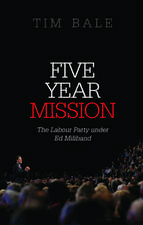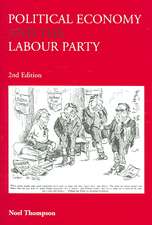The Sociology of Political Praxis (RLE: Gramsci): An Introduction to Gramsci's Theory: Routledge Library Editions: Gramsci
Autor Leonardo Salaminien Limba Engleză Paperback – 27 ian 2017
| Toate formatele și edițiile | Preț | Express |
|---|---|---|
| Paperback (1) | 436.14 lei 6-8 săpt. | |
| Taylor & Francis – 27 ian 2017 | 436.14 lei 6-8 săpt. | |
| Hardback (1) | 1002.63 lei 6-8 săpt. | |
| Taylor & Francis – 13 mar 2014 | 1002.63 lei 6-8 săpt. |
Preț: 436.14 lei
Nou
Puncte Express: 654
Preț estimativ în valută:
83.46€ • 89.24$ • 69.58£
83.46€ • 89.24$ • 69.58£
Carte tipărită la comandă
Livrare economică 17 aprilie-01 mai
Preluare comenzi: 021 569.72.76
Specificații
ISBN-13: 9781138998117
ISBN-10: 1138998117
Pagini: 270
Dimensiuni: 156 x 234 x 14 mm
Greutate: 0.45 kg
Ediția:1
Editura: Taylor & Francis
Colecția Routledge
Seria Routledge Library Editions: Gramsci
Locul publicării:Oxford, United Kingdom
ISBN-10: 1138998117
Pagini: 270
Dimensiuni: 156 x 234 x 14 mm
Greutate: 0.45 kg
Ediția:1
Editura: Taylor & Francis
Colecția Routledge
Seria Routledge Library Editions: Gramsci
Locul publicării:Oxford, United Kingdom
Public țintă
General, Postgraduate, and UndergraduateCuprins
Introduction. Part 1: The Philosophy of Praxis and Gramsci’s Sociology 1. Marxism As An Autonomous and Independent Weltanschaung 2. The Specificity of Marxist Sociology in Gramsci’s Theory Part 2: The Sociology of Political Praxis 3. The Masses and the Dynamics of History 4. The Intellectuals and the Dynamics of Historical Blocs 5. Hegemony in Marxist Theory and Praxis Part 3: Political Praxis and the Superstructures 6. Science, Political Praxis and Historicism 7. Language, Political Praxis and Historicism 8. Aesthetics, Political Praxis and Historicism. Epilogue.
Notă biografică
Multivolume collection by leading authors in the field
Descriere
This volume analyses the philosophical nature of Gramsci’s Marxism and its Hegelian source, the radical critique of the economistic tradition and the original analyses of the role of superstructures, ideology, consciousness and subjectivity in the revolutionary process. It relates the central themes of Gramsci’s writings, such as hegemony, ‘historical blocs’, the role of intellectuals and political praxis, to the more peripheral ones, such as science, language, literature and art. The introduction includes a brief intellectual biography of Gramsci.
























